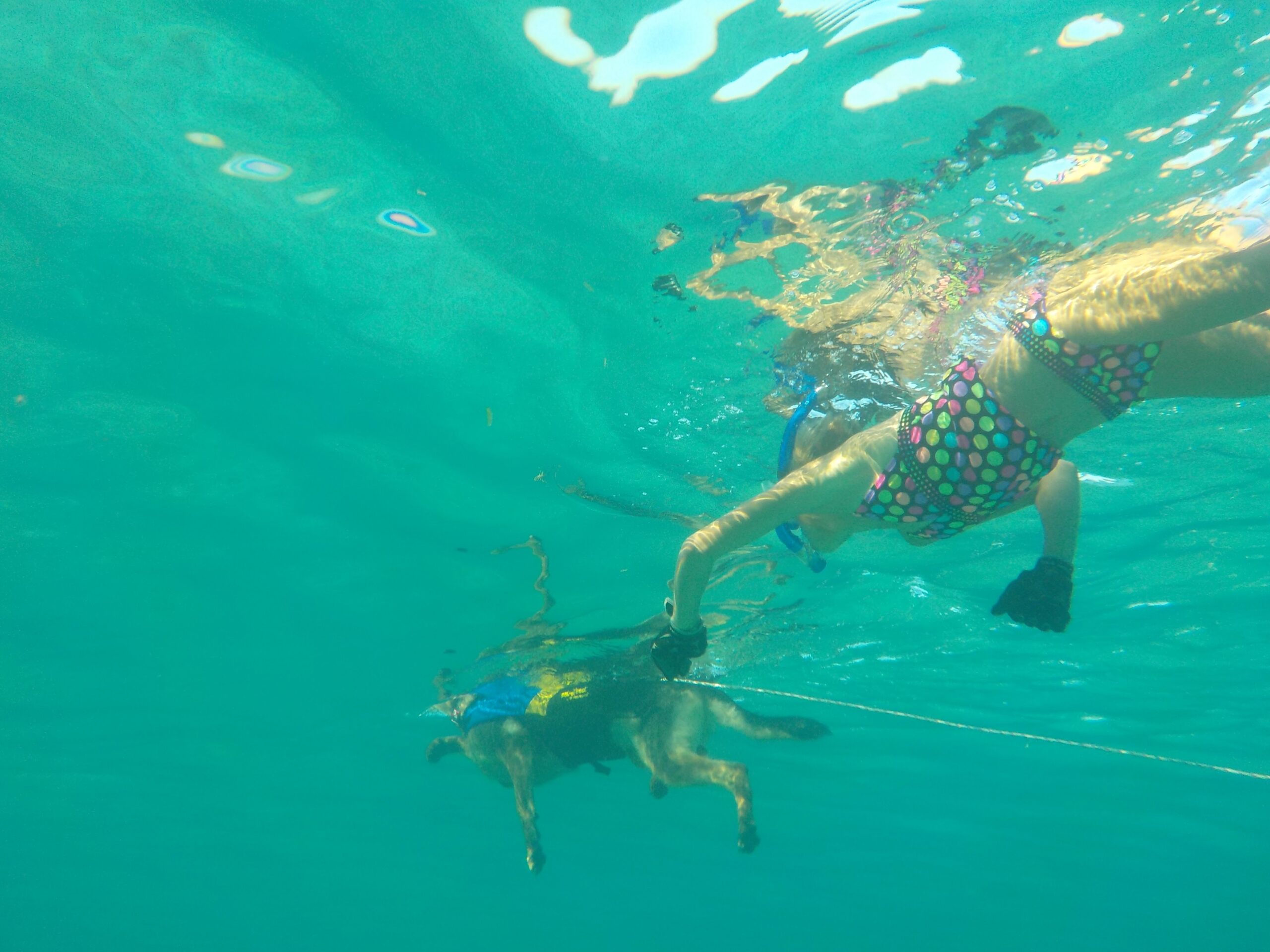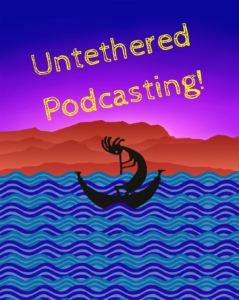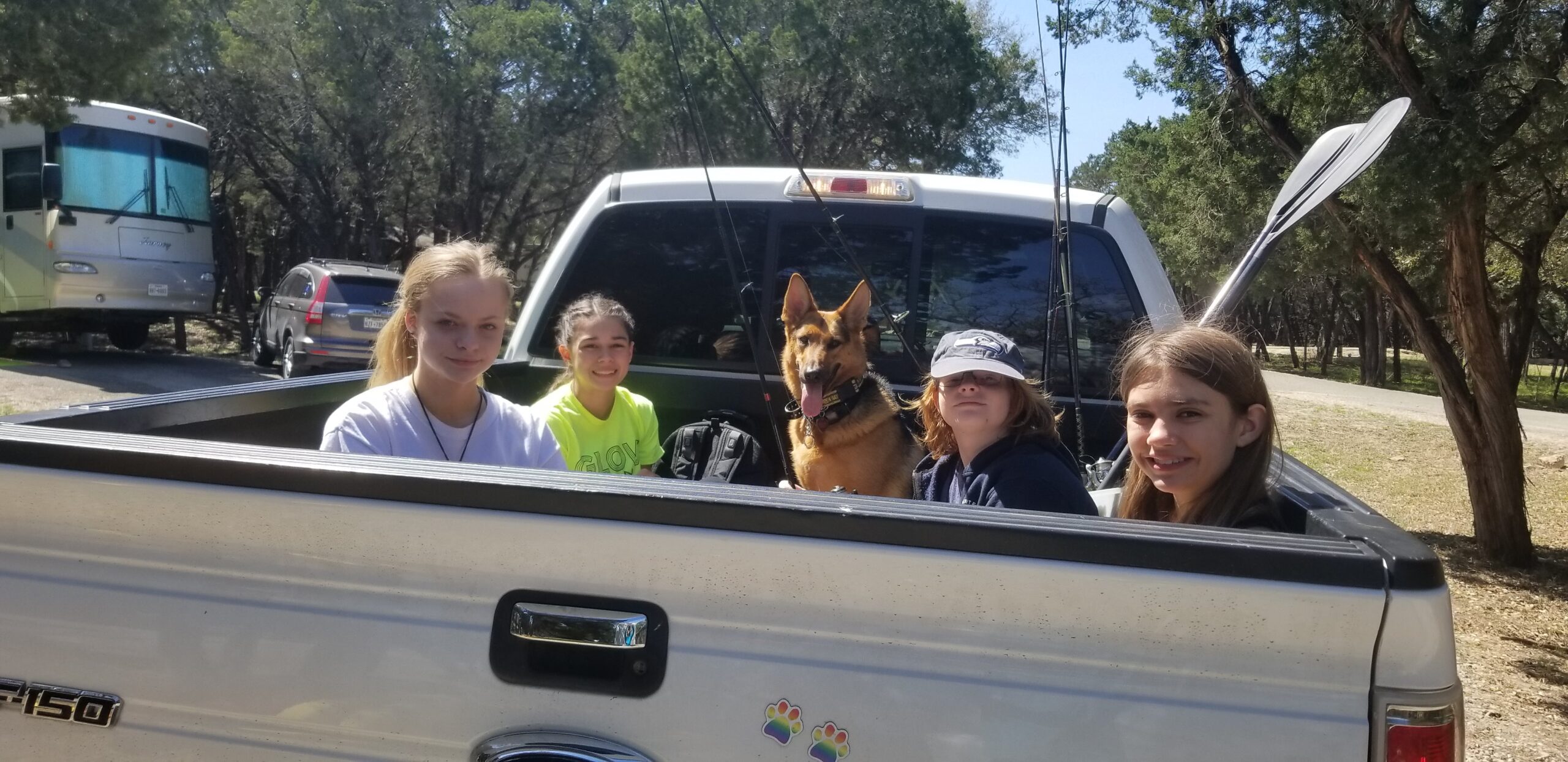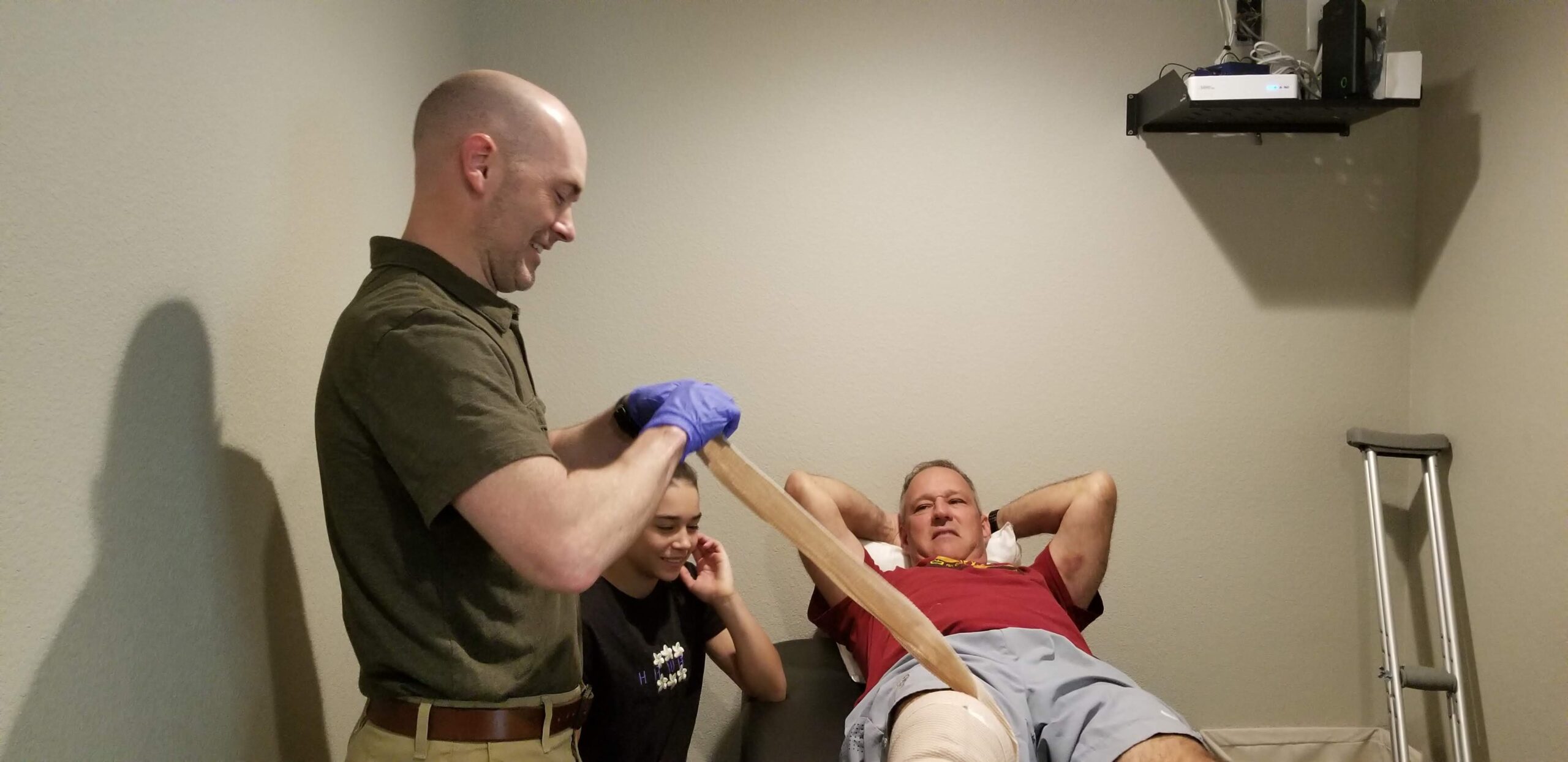
NMC047 Abacos to Eleuthera
Daphine Mbithuka

Podcast: Play in new window | Download | Embed
Subscribe: Apple Podcasts | Google Podcasts | Spotify | RSS
Episode #47: Abacos to Eleuthera.
Recorded: December 29, 2016.
Location: Underway between the Abacos and Eleuthera, Bahamas
Subject: Handling waste – the scoop on poop in the middle of the ocean!
Let’s face it, talking about leaking and overflowing toilets can be nauseating. However, as New Mexi-Castaways host, Rosa Linda Román puts it, how to handle waste is one of the most important things a sailing family must consider when moving onto a boat. Waste management on land is very different from how things are handled at sea. On a boat, you not only have to make sure sewage systems are operating properly but you also must be careful to avoid harming the marine life around you.
In this episode, Rosa Linda Román takes us on a practical journey on how sailing crews handle waste while out on the ocean. And, as Rosa Linda shares, it’s not just the human kind to worry about. With Nala, the German Shepherd onboard there are other factors to consider. After all, where does a dog relieve herself on a boat? In this episode, we answer this question and more. What happens when there are toilet leaks or blockages? What do you do with all that sewage out at sea? If you’ve had a gazillion questions about this topic, brace yourself for an enlightening session with the scoop on poop.
P.S. If you haven’t listened to the previous episodes leading up to the launch, you can catch them here:
Featured in this Episode:
Get the Full Episode Transcript:
download the transcriptEpisode Transcript:
Rosa Linda Román (00:29): Hello and welcome to New Mexi-Castaways. I'm Rosa Linda Román and I am inside the galley of the Dawn Treader. I'm trying to be somewhat quiet because downstairs Miss Allie, our nanny is asleep as well as my daughter, Ahava, 11-year old daughter is also asleep. We just left the Abacos. We just went out North Bar Channel and headed out to sea. We spent the night anchored in the sea of Abacos by a place called [INDISCERNIBLE 00:01:06]. And we are now out on the Atlantic Ocean heading to Eleuthera. I have done a bunch of recordings of the audio experience along the way. So, I think I'm going to put out a couple episodes just for the natural sound. But the sound you hear right now, that is me making milk, not exactly, but taking boxed milk, which we brought as part of our ship stores and mixing it with powdered milk, non-fat dry milk. Rosa Linda Román (01:44): And then, we take the gallon that we had brought with us from Florida and we just clean it really well with bleach and reuse it and my daughter is a milk kid and all my kids like milk. So, we're constantly trying to keep up with the demand without breaking the bank. Where we just were was Hope Town, one of my favorite places in the world. And we checked at the grocery store there at Vernon's Grocery and milk was almost $9 with tax for a gallon. And so, this is the way we save some money. We have seen it as high as $13 a gallon. So, it's apparently hard to come by. So, I try to like make it this way to save some money. I have to do calculations to see how much it actually saves us, but it makes us feel better to know we have a supply in our stores, if you will, we have a cabinet full of different food items. Rosa Linda Román (03:01): Let's see, what else are some of the things that my family doesn't like to do without? Well, one of the things is Parmesan cheese or cheese in general, but Parmesan is easy to store, pasta in general. So, we have a bunch of pasta and Parmesan. I put a call out to, there's a group called Kids4Sail, like as in sailing not selling the kids, that I posed the question to that group because they're also people who live aboard both with kids. I asked them, “If you were to do one last Costco run…” which is what we were doing before we left Florida, “…what would you make sure to bring with you?” And the answer is varied, but a few of the things they suggested really helped us not forget some of the critical things like Parmesan cheese and milk, of course. We knew milk. Milk was a given Rosa Linda Román (04:01): But things like Nutella and we bring almond butter, and peanut butter, and nutella and jam. Although jam seem to be something I can get in The Bahamas, the things like nutella are so expensive that it's nicer to bring them if we can. So yeah, that was sort of fun. It was fun to get the input from people who have done this before or many of whom are doing it now. And I'd have to go back and look at the list of what we brought, but that was a fun process of figuring out what we needed to bring. We're already seeing some of the things we wished we brought more of. For me, my staple is hazelnut creamer for my coffee. Rosa Linda Román (04:56): We brought coffee, but we knew we were going to buy coffee in Hope Town, because if you go back through New Mexicast’s, the video archive, you'll find I did a story on the Hope Town Coffee House and in [INDISCERNIBLE 00:05:14]. They actually roast their coffee right there on site. So, we wanted to make sure to support that business and they've become friends over the years. And so, we got our coffee in Hope Town. It was significantly more expensive for us to do it that way, but you know, some things you go to splurge on. But I did bring lots and lots of hazelnut creamer, only one that we brought as a liquid, but then the rest was powdered, becaue we don't have a lot of refrigerator space. That's really the big thing, is how to make… oh, and the other thing, how to make sure we have what we need or what we really like and want, that we would rather not have to do without, without a lot of refrigerator or freezer space. So, that was the challenge. Rosa Linda Román (06:06): One of the other things is eggs. And I now already realize we should have brought more. There's an egg product that's like eggs in a box. And we should have brought more of that for sure, because we're already almost out. And I guess some places eggs aren't too much, but there are times where eggs are ridiculously expensive and most people use eggs for lots of things, I think, to bake and we just like eggs in general for breakfast. So, the other thing I brought a lot of is this smart balance margarine because Nathan, my husband, has a cholesterol issue. So, he can't really eat butter and butter is the kind of the standard fair in most grocery stores in The Bahamas. You don't find a lot of margarine. So, that's one of the other things we brought. Rosa Linda Román (07:02): The other thing I wish I had brought more of is cereal. My kids just love cereal and it's kind of like a snack food for a lot of us. We just eat it, you know, in between meals and things like that. So, I wish I had brought more. We're almost out of cereal and it is very expensive in The Bahamas. So anyway, that's just what I'm thinking about right now, because I'm in the kitchen making milk and getting cereal out for the kids it's early morning around, well now it's like almost eight o'clock actually, which is why it's so funny that the Miss Allie and Ahava are still asleep. But we went out the cut maybe 45 minutes ago and everybody's feeling, at least the people who are awake, are feeling a little bit queasy. Daniel and Ziva woke up, we were underway already by the time that they woke up. Rosa Linda Román (08:12): So, they were kind of feeling a little bit queasy. So, they went up to the helm. I'm going to bring them some food up top. We'll see how everybody does today. The problem is when you wake up underway, it can go either way. It can be really no problem and smooth, and it kind of acclimates your body to it. That radio is sounding quite annoying isn't it? You know, if you wake up when you're already underway, sometimes it's better for you because then you kind of get the sea sickness out of the way because your body is moving into in the rhythm of the ocean swells. But sometimes you just never can get that edge of see sickness gone. So I'm going to see how they do. I'm going to bring them some, and then, I'll check in again in a few. Rosa Linda Román (09:25): So, I just dropped off some cereal up at the helm area for Samuel and well I brought it to whoever wanted it and both Ziva and Nathan said, “Oh no.” They do not feel well. So, I'm actually coming down, I'm down in my bathroom area, getting, we have something called sea band, and you put them on your wrist and it supposedly helps you feel less seasick. I don't know if it works or not. But I'm going to bring it up to them just to see. And since we're talking sick and gross things, I am right here at my toilet or the head, as you call it, is completely backed up and will not flush. The toilets are kind of a nonstop pain point on a boat, like, you know, trying to get rid of figuring out waste. Rosa Linda Román (10:28): I know this is really fun to talk about, but what the heck? I'll share it all with you. Figuring out waste issues is not ever fun on a boat. I mean, you're in a closed environment. Obviously, you have to be very mindful about not wanting anything to leak and stuff like that. But marine toilets are notorious for breaking and our toilets here on our boat, which is a Lagoon 450 are seawater toilets, which means that brings in water from the ocean and goes into your toilet, you know, and then, goes into a holding tank when you flush. The problem with that is, I mean, it's wonderful because you don't use a lot of water. And fresh water is obviously a number one concern because you can't live without fresh water. And so, it saves us on using our fresh water for flushing toilets, but the downside is there's all kinds of little microorganisms that come with seawater. Rosa Linda Román (11:28): And when those get into the filtration system of the toilet or just the toilet system in general they can die and back things up, you know. Some of them actually, I don't know enough about it, but I just know they’re a pain in the behind, no pun intended. So, we thought we would be okay. We knew our toilet was acting up pretty much. We have three toilets on board and the one in the guest room, which is currently our nanny, Miss Allie's room for another 10 days or so, less than that, probably eight days before she heads back to college. But her toilet, it just has kind of a smell that permeates that cabin, which is awful. And we've tried lots of different things to stop that. Rosa Linda Román (12:26): But it flushes her toilet, it least flushes well. The kids' bathroom and toilet doesn't flush so well, and a lot of times things will come back up, which is never fun. And so, there's the smell related to that. And then, now our toilet, it leaks in the back, so we have to constantly clean yucky water out of the back side of the toilet. And then, now for some reason, this happened twice before it just completely won't flush at all and shy of taking it apart or replacing it, we just don't know how to remedy that. All right, they're calling for me, so let me go. There's dolphins outside of our boat. Gotta go, gotta go, gotta see the dolphins. Rosa Linda Román (13:28): Well, I was outside and thought that I would record the process of picking up after the dog, but it was, A, too windy and apparently I bumped it, and so, I was not able to record it, which is probably a good thing because I was talking a lot of poop, but I'm not going to be done with it because I think that's part of what is on my mind this morning. We are now a few hours later. It's 10:17 in the morning and everybody's awake and there's some residual sea sickness, but no one has puked yet. But I might just in a minute because I am about to do the dirtiest of jobs. Let me finish telling you about the dog toilet. Basically, she has a grass patch that she goes on, and then, when you're out at sea, you can just dump it overboard, which is great. Rosa Linda Román (14:36): But it has a wash down area, which is what I was kind of talking about in the failed recording with the wind and all of that. So basically, you dump the dog stuff overboard, and then, you hose it off with a saltwater rinse. We have a hose and a pump right there and it's got a drain. And so, you just kind of rinse off the dog’s, it's a fake grass mat which I actually got from the pet store. It's part of like, they have a whole system where it has like base that has drainage. Well, we didn't buy all that. We just bought the refill mat and put that down. And from the time Nola was little, we taught her to go exclusively on that lately. She's been a little bit lazy and went on the deck near there, but at least still it's within the hosing off range. Rosa Linda Román (15:33): So, that was that. I handled that this morning and got that all cleaned up. And now I'm about to do the most disgusting job I've had to do since moving on to the boat. Our toilet is totally full of waste. I was explaining in the part of the audio that got messed up that a toilet, a marine toilet has a macerator and it chops up all the waste and makes it into a liquid form basically, which sounds gross, but it makes it so it's not harmful to any marine life or anything like that. And then, when you're out at sea, like we are thousands of feet, you know, depth, there's a valve you open and it lets the tank empty into the sea. When you are at a marina, you use a pump. You have like, the deck hand will come or what do you call it? Yeah. The people that work at the marina, they come and they have a special machine that they hook up to your tank and it sucks everything out of the tank because you know, it eventually fills up. So, that's called a pump out. Rosa Linda Román (16:33): And any of you that have done RVing know about that because that's probably the same kind of thing. And that's the way it's supposed to work. But now the disgusting job I'm about to do is my toilet. The head, as they say, is completely backed up full to the top of waste water, and it has to be removed. Number one, we are out at sea, in the Atlantic Ocean with rolling swells. And so, every time we go up and down, there's a risk it's going to pour out onto the floor. So, you guessed it, I've got to scoop it out and dump it out. Rosa Linda Román (17:28): So, yeah, I just wanted to let you guys know because you know, misery loves company. I thought I would share with you that that is the job I have undertaken right now. And I'm going to be working on this for a little while, dumping and scooping out the disgusting waste. I figured I might as well tap off this whole episode with the conversation of what you do when it comes to poop and stuff like that on a boat. The answer is, it is something you think about a lot more than you probably do at home in a normal house. In a normal house, you flush a toilet and you move on. In a boat it seems like we are talking toilets a lot. So, I'm going to take a break to do this job, so that I don't have to touch my phone or the recording. And I will come back to wrap it up in a little bit Rosa Linda Román (18:40): All right, mission accomplished. That was a dirty job, but somebody had to do it. Now we still can use the toilet, but at least it won't overflow on the floor. Meanwhile, I put on some Disney music, so you can hear that in the background. Hopefully, that doesn't affect my podcast and I need to go take a picture of Miss Allie because she is snuggling with the dog [INDISCERNIBLE 00:19:07]. So now, what I'm going to do, so it's kind of funny because everybody else is still very queasy and feeling lousy. I actually think the solution for a lot of that is just to do something else. If you sit and think about your misery, because I had many moments of queasiness already this morning, but it seems to me as if when you are doing something you're less thinking about how you feel and you're just focused on the task at hand. Rosa Linda Román (19:41): So, I am using the time when I have the house to myself, even though everyone's here, nobody wants to be inside because they are feeling we queasy-ish, so I'm using the chance to do things that I don't always get the chance to do. So, one of the things I'm about to do is pull out the crockpot, which I totally had forgotten we have. I'm going to take that out and start some, which if you guys know me, I'm not the cook in the family, but since the cook, AKA, Nathan, is not feeling well, plus it's going to be, tonight when we get there to Eleuthera, you know, there's going to be a lot of work to do. And a lot of his time and focus will be occupied. I figured I should start something so that we have something to eat when we get back and when we get there, so I'm pulling out the crock pot Rosa Linda Román (20:37): The other thing I wanted to try to do because it would be fun for the kids is make some bagels. I'm debating bagels or donuts. Donuts because it's in the middle of Hanukah and one of the things you eat in honor of Hanukah is something called sufganiyot, which are basically jelly donuts which we've never really done or made. We've made latkes, you guys probably are familiar with. Those are the potato pancakes that people eat during Hanukah time. We were eating the last of the bagels that we bought in Hope Town, which frankly were not very good, but maybe we could make our own bagels. And so, I looked up the recipe because one of the things we have on board is a bread machine. Rosa Linda Román (21:28): So, it's just funny how, A, you become much more domestic when you're living on a boat and you have to get creative. I guess some people don't, but I do. Right now I'm refilling the soap dispenser for dishes and I'm enjoying the time here in my house, in the kitchen, and throughout the house to get stuff done while everyone else is just kind of sitting upstairs in the helm, trying not to get sick. So yeah, I'm going to get to work on making some, I think I'll make a chicken mushroom casserole in the crockpot. And the other thing that I'm enjoying making that we… because part of the problem is when you don't have power, you don't have solid, consistent power there's limits to what you can do. So, you make the most of it when you have the engines on that charges the batteries. Rosa Linda Román (22:27): And so you can use up more power since we'll have the engines on for 10 hours or so, I'm making most in it. So, I'm going to put the crockpot on, I'm going to put the bread machine on, and I'm going to turn on the ice maker as well. Oh, and I'm also doing laundry. We have a washer dryer, but it's a power drain. And so, this is the time for me to do laundry as well. So yeah, I'm just going to be over here crossing the Atlantic Ocean, being domestic while the rest of you hopefully got a little chuckle out of some of this, this process, especially, the poops subject. I know that was exciting. Oh, I should wrap it up by telling you when we had Miss Linda on board, she was our nanny before before Allie, we had a situation since this is the subject that we're talking about. Rosa Linda Román (23:27): There was a point where she said to us, she woke up in the morning and she said, “Could we just have one day without saying the word poop at all?” Because we had just had a new puppy, Nola, and she had just discovered the ocean and decided that drinking the sea water was going to be super fun. And what that equates to with a puppy is explosive diarrhea. So, there was nonstop, and then, of course at the same time we had issues with the toilet. And so, it did. It felt like all we did was talk about poop. So now you guys have the poop when it comes to a boat and I hope you enjoy this podcast. If you do enjoy it and you want to share with anyone, please feel free to hit the share button, tell your friends, let them know about our New Mexi-Castaways. And if you want to see some of the stories I've done, which are more of the well-produced variety video stories you can go to New Mexicast TV on YouTube. And yeah, you can always subscribe to this podcast either in iTunes, or Stitcher, or one of the other places that you like to listen to podcasts. Thank you so much for listening and I'll check in when I get a chance I'm Rosa, Linda Román.
Copyright: New Mexicast, Inc. 2021 All Rights Reserved



